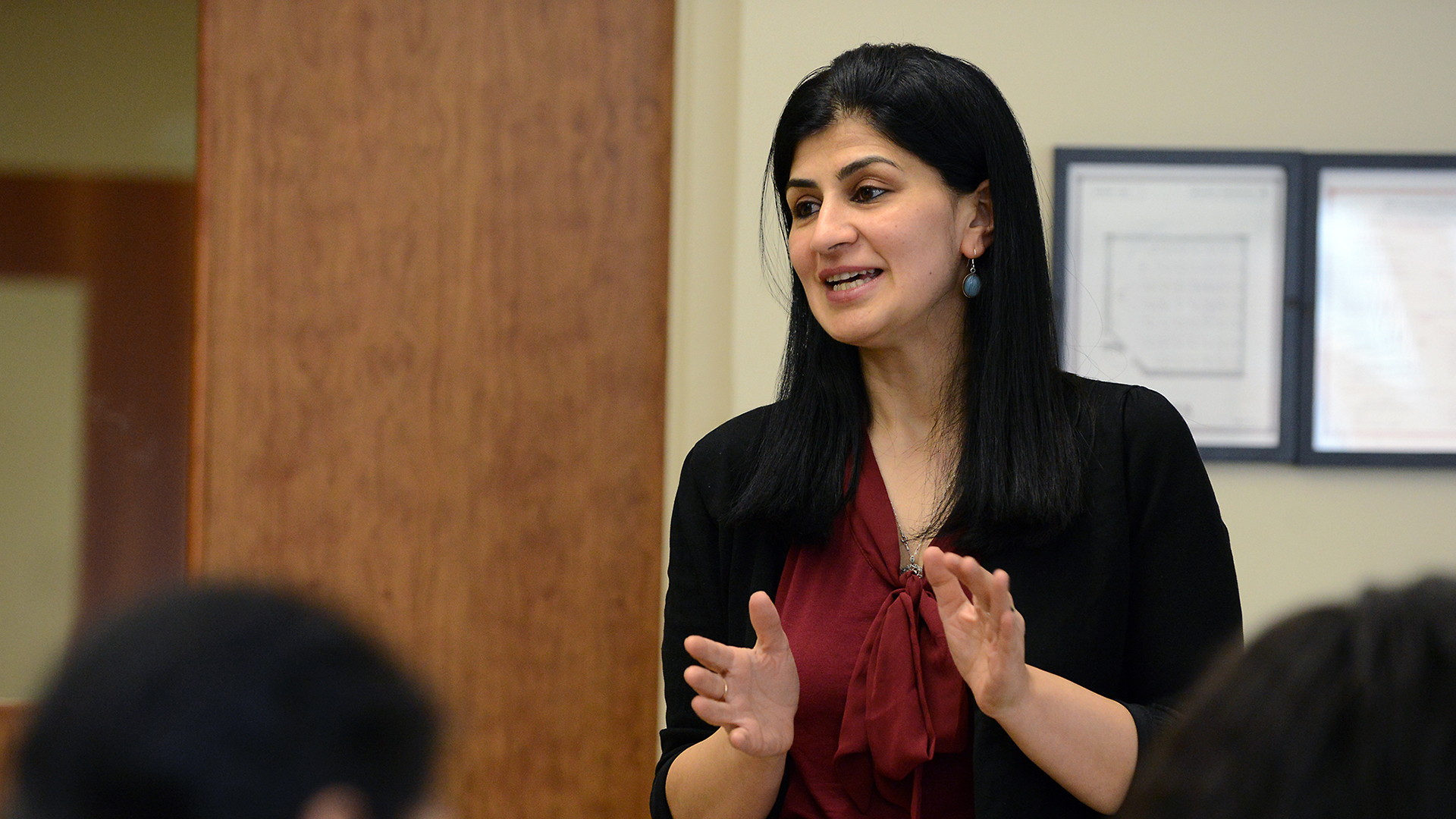Monday, May 16, 2016
by Adam Grybowski
Dr. Shahla Hussain, an assistant professor in Rider University’s Department of History, traveled to three continents to conduct research for her doctoral dissertation on the contested region of Kashmir. The region has been a source of conflict ever since the partition of India in 1947. India and Pakistan both made claims to the territory, leading to several wars and thousands of deaths.
In South Asia, Britain and the U.S., Hussain sifted through unpublished memoirs, letters, poetry and prison diaries in private collections. She also investigated public collections, poring over official documents, intelligence reports and other archival material.
Adding to those sources, Hussain conducted interviews with families, separatist leaders and many others. She spent time in villages and visited psychiatric hospitals.
The extensive field work added up to a deep understanding of the citizens on both sides of the India-Pakistani divide and the Kashmiri diaspora.
“What my work does is emphasize the need to integrate different voices into the narrative and understand the emotions that have alienated Kashmir from India and Pakistan,” Hussain says. “To have peace, we need to understand the motivations that spark resistance.”
Having received her master’s degree in medieval Indian history and bachelor’s in history from Jamia Millian University in New Delhi, Hussain wanted to conduct a study about Kashmir and examine the conflict from the perspective of Kashmiris who were forced to endure it on the margins.
“I wanted to bring in the voices of people,” she says. “Instead of focusing on the state, I wanted to view it through the prism of people who have lived through the conflict.”
Admitted to a doctoral program at Tufts University in Massachusetts, she left her home to study under the guidance of Ayesha Jalal, a Pakistani-American historian and Tufts professor who received a MacArthur “genius” grant in 1998.
“My research seeks to to emphasize that the Kashmir dispute cannot be merely seen as a national security issue between India and Pakistan,” Hussain says. “It is also a human problem that has affected the lives of several generations of Kashmiris since decolonization.”
In the classroom, Hussain often assigns novels, short stories and films for her students to read and watch in addition to more typical historical texts. The expanded curriculum is another example of her wish to include different voices in the study of history and scale the subject to the personal. Literature, she says, helps students develop a sense of “historical empathy.”
“Literary works provide insight into how people cope with problems in societies with political oppression, where they can’t engage with ideas openly in other forums,” says Hussain, who joined Rider in the fall of 2015 after teaching for a year at Wheaton College in Massachusetts. “This helps the students to comprehend human actions within a specific historical and social context.”
The different viewpoints also help students develop new perceptions. Hussain has found that many students in the U.S. lack a deep understanding of history outside of America and Europe. “Students can be very inward looking, and for them to engage with different cultures, sometimes it takes a little effort,” says Hussain, who teaches classes at Rider on world history to 1500 CE, the modern Middle East and British colonialism in India.
Hussain sees the study of history, while inherently about the past, as very relevant to the present moment. “I believe you can’t understand your present if you don’t understand your past,” she says.

